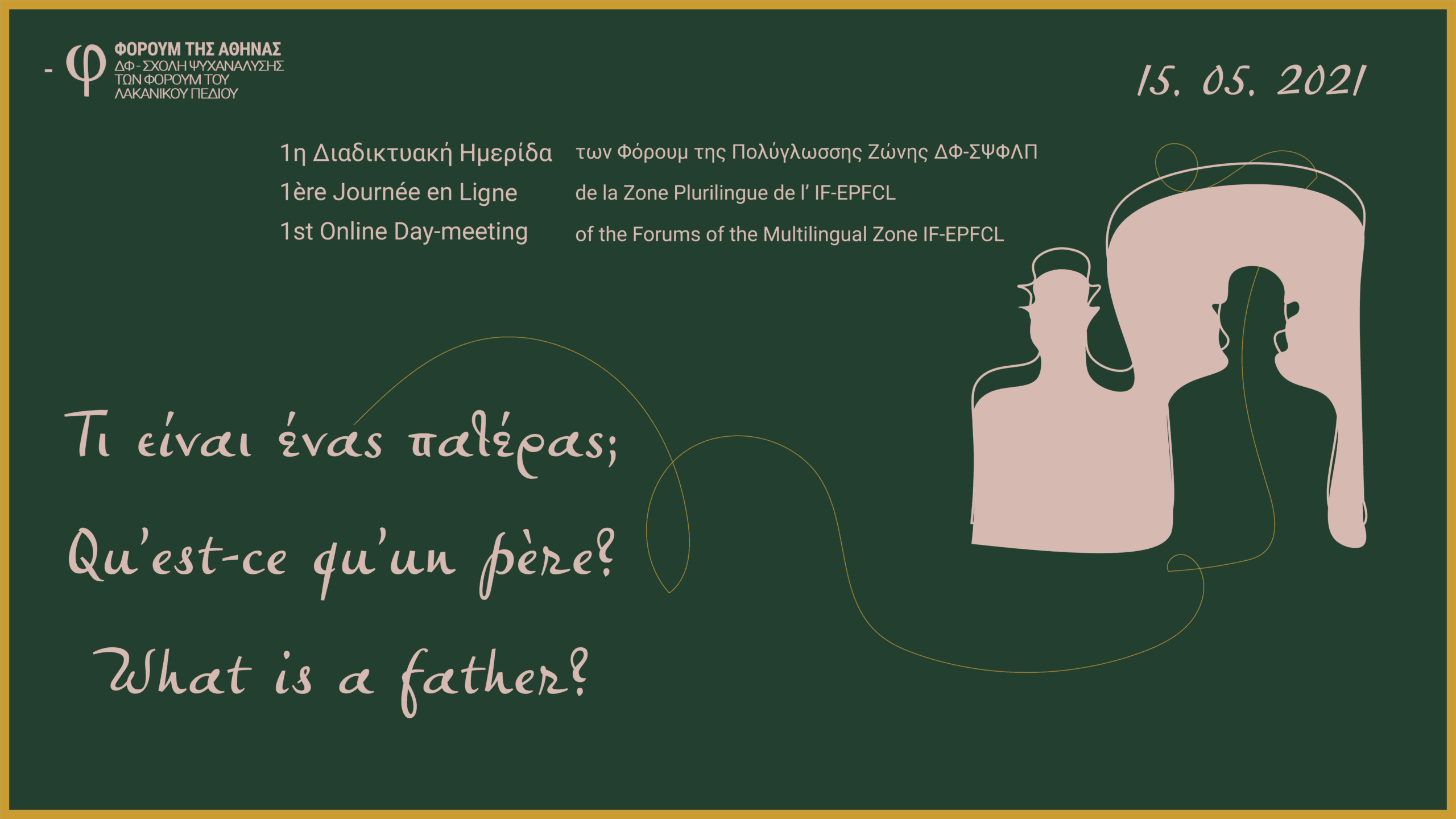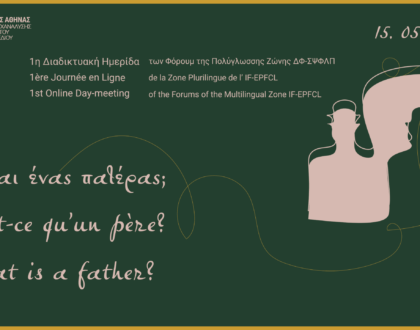Justice of the Father

Predule FLF of Lebanon
1st online Day-Meeting of the Forums of the Multilingual Zone IF-EPFCL
In psychoanalysis, we do not talk about justice, it is not an analytical concept but it is the basis of it. Justice is in fact a biological and anthropological issue. This is a question that arises in philosophy. “The just man establishes an interior order, he harmonizes the three parts of his soul absolutely like the three terms of the musical scale”, said Plato (The Republic). What justice are we talking about in psychoanalysis? Are we talking about it? Could there be a man to whom the signifier “just” would be attributable?
Of course, despite the exclusion of the use of the signifier justice in psychoanalysis, the only justice remains that of the “castration” (Lacan, the Seminar La relation d´objet) made by the father of the paternal function. It is the separation from the enjoyment (jouissance) of the body of the maternal Other. For Lacan, castration does not come so much from external repression, as from an enactment of the act of speaking. It is in the fact of being caught up in language that the subject loses the primary enjoyment of his body. The child, dislodged from the place of being the mother’s phallus, meets the father’s penis there (this is what justifies his absence). It is the experience of lack that humanizes human beings through access to their desire. Castration would therefore be a symbolic operation which is carried out on an imaginary object, of which the agent is the symbolic father. Thus, justice is phallic, it is the virtue of the Law. “I am castrated like my father! “With all the suffering, loss, deprivation, etc. … caused by this exile of maternal Lalange. On the maternal side, injustice takes over. Maternal love is “capricious”, it carries with it what the child represents for its mother. And in this role, the maternal marks what injustice is in this dual mother-child relationship. The question of the father is often dealt with through his separating function, without mentioning his role – if he has one – within his family. So what is the role of the father? What is meant by the signifier “role-of-the-father”, the role being previously attributed to the mother? A question to think about …
Cynthia Jabbour
Forum du Champ Lacanien du Liban

